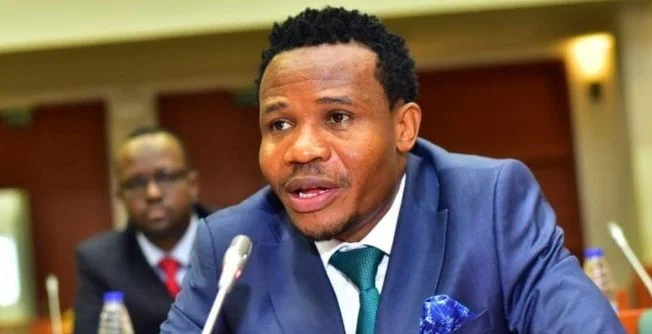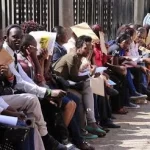
Mumias East Member of Parliament (MP) Peter Salasya. PHOTO:Peter Salasya
In Summary:
- Mumias East MP Peter Salasya received 5,000 calls urging him to reject the Finance Bill 2024.
- Salasya clarified that his vote alone wouldn’t impact the outcome due to Kenya Kwanza’s majority.
On Thursday, June 13, Mumias East Member of Parliament (MP) Peter Salasya faced a deluge of phone calls from concerned Kenyans, prompting him to take a stance on the Finance Bill 2024.
Salasya reported to the media that he had been inundated with 5,000 calls from citizens urging him to oppose the bill.
This wave of calls was part of a coordinated online effort where the phone numbers of MPs were circulated, encouraging the public to reach out to their representatives and demand they vote against the bill.
Salasya, however, downplayed the significance of his individual vote, explaining that the ruling Kenya Kwanza coalition had enough votes to pass the bill regardless of his stance.
“Even if I vote no, as long as the Kenya Kwanza members vote yes, they have the numbers. There’s nothing I can do,” he stated.
He urged Kenyans to direct their calls to Kenya Kwanza MPs instead.
“There are almost 5,000 numbers calling me, including some who supported President William Ruto. Why disturb me when I am an Azimio member?” he questioned.
The Mumias East MP emphasized that the Finance Bill was crafted by the Kenya Kwanza administration, and their MPs should be the ones to receive the pressure.
“They should call Ruto and ask him why he brought this Finance Bill to Kenyans,” he suggested. “Those calling should focus on Kenya Kwanza, as they are the ones who will decide the bill’s fate.”
Salasya, a member of the Democratic Action Party of Kenya (DAP-K), lamented that the overwhelming calls were preventing him from communicating with his family and constituents.
“I regret that due to the barrage of calls, I am unable to communicate with my family and constituents,” he said.
A segment of the Kenyan population opposes the Finance Bill due to its proposals to expand the tax base amid a high cost of living crisis in the country.


